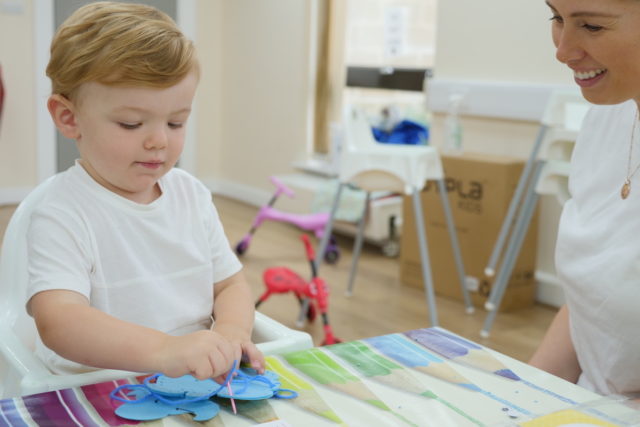Do we do trial classes?
In short, no we don’t.
Why?
Because it takes a little while for most children to settle into our classes.
We’ve just completed week 3 of our new term and it’s been an amazing week for us as teachers, watching the many ‘breakthroughs’ there have been, and for many of you too, (as you’ve told us) as parents or carers of our Little Splodgers!
It’s always amazing how quickly the little ones improve, and week 3 always seems to be a week where people (both big and little), seem to turn a corner and really start to ‘get’ what we’re trying to achieve in our classes. And I’m sure lots of parents are pleasantly surprised by what their children are capable of, and how much they enjoy the process.
And in all honesty, (and we’ve been told this many times), if you were to judge our classes on one isolated class, as a trial for instance, most people would say “no, I don’t think it’s for us – s/he’s too young/not ready yet etc etc”. But after a couple of weeks, it’s quite clear that they are old enough – and ready – and really start to thrive in the classes!
This week will bear testament to this by the fact that we’ve had 15 (sold out) classes of little people (as young as 12/13 months) sewing!
S E W I N G!!!
And we’ve been very excited to witness it and to be a part of it! It’s a massive achievement and it should be (and was) celebrated!!
Learning a new skill and gradually mastering it can greatly improve a person’s self-confidence. This is particularly true for little ones, because they seek acknowledgement and praise, which is something that they can obtain from sewing and completing their weekly crafts (however incomplete you think they might appear). Once they realize that they have created something on their own, the very sense of accomplishment will help them to build their self-confidence. And their confidence in their own ability/skill.
Sewing is just one of the many techniques we employ to help the little ones with their fine motor control.
Small children often have trouble when they have to do precise work with their hands – this is quite normal, just a stage of their development. But sewing can really help with this.
It helps them because the needle is fine and small, and they have small hands and are usually used to chunky crayons, brushes etc – so it’s good practice for them holding a smaller object as they will eventually graduate to pencils and pens and other small work tools like fine paint brushes.
It’s great for aiming and hand-eye-coordination too (which is another facet of developing fine motor skills) – and the children actually getting the needle to go where they want it to go can be a challenge for some at first, but because it’s a simple task, they are more likely to stick with it and therefore get better.
It is a ‘long game’ the development of fine motor skills. It’s not something that happens overnight! And it’s not something that once they’ve done once they can then do again. Fine motor skills are complex, they involve the co-ordinated efforts of the brain and the muscles. It takes repeated practice – and it’s the repetition that makes these small muscles of the hands and wrists able to make all the movements that we as adults take for granted.
And that’s why we keep working on them every week in class; week on week, term on term – and together we’ll help to give your children the best start in life that they can get!
